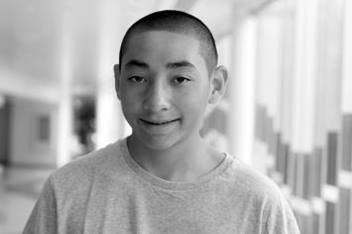Latent Tuberculosis Infection (LTBI)
![]()
Tuberculosis (too ber cu LOW sis), or TB, is the common name for a germ called Mycobacterium tuberculosis. Persons with latent TB infection (LTBI) do not feel sick. They do not have any symptoms but can potentially develop active TB disease. Also, persons with LTBI are not contagious. This means that they cannot spread TB to others. The main ways to diagnose LTBI are by placing a tuberculin skin test (TST) on the forearm or by getting a TB blood test, in addition to obtaining a chest radiograph (x-ray) if either one of these tests is positive.
One-third of the world’s population has LTBI. The TB germs are dormant (asleep) in the body. Most people with LTBI can fight the germs to keep them from growing. This depends on the person’s immune system. LTBI can be treated to prevent active TB disease. See Helping Hand HH-I-209, Active Tuberculosis (TB) Disease.
Risk Factors for LTBI
Close contact with the following people increases a person’s risk of getting LTBI.
- People who have active TB.
- Those who were born or have traveled or lived overseas.
- Groups with high rates of TB transmission, such as the homeless, injection drug users, and those with HIV/AIDS.
- People who are at high risk for TB, such as those in hospitals, prisons, nursing homes, homeless shelters, or refugee camps.
Some people are more likely than others to develop TB disease (active TB), including people who have compromised immune systems, people with certain medical conditions, the very young (less than one year of age), and the elderly.
Signs and Symptoms
People with LTBI are healthy and do not feel sick.
- They typically have a negative (normal) chest x-ray.
- They have a positive TST and/or a positive TB blood test.
Diagnosis
Certain tests are used to diagnose TB infection, including the following:
- TST
- TB blood test
Symptoms and chest x-ray results are negative (normal) for people with LTBI.
Treatment
The usual treatment for LTBI is taking an antibiotic called isoniazid (INH), once daily for nine months. Your child will have an appointment in the TB clinic once each month so that we can monitor the child’s weight and adjust the dose of the medicine as needed.
Another option for children 2 years old and older includes once weekly therapy in the TB Clinic with isoniazid and rifapentine for a total of 12 weeks. We will discuss these options with you to determine the most appropriate therapy for your child and family. Whichever medicine your child takes, we will monitor your child with you to make sure that he or she is tolerating therapy.
It is very important for your child to take this medicine and to keep appointments as directed.
What to Watch for at Home
It is expected that rifamycins (rifampin, rifapentine, and others) will make urine, stool, and other body fluids (such as tears and saliva) turn orange. This orange color will go away at the end of therapy. During therapy, contact lenses may become permanently stained.
Watch for and report any adverse effects of the medicines. These include:
- Stomach pain
- Nausea
- Vomiting
- Yellowish skin or eyes
- Rash
- Fever
- Changes in vision
- Tingling in the fingers or toes
Activity, Diet and Other Information
- Do not give your child acetaminophen (Tylenol®) or any form of alcohol. Taking either of these while receiving TB medicines can harm the liver.
- If your child is taking daily INH, in general it should be taken on an empty stomach, either one hour before a meal or two hours after a meal. Sometimes, your child may need to take INH with food. If so, it should not be taken with milk products.
- Your child will likely have a positive TB skin test and TB blood test for the rest of his or her life. Therefore, when being tested for TB in the future, your child will need a chest x-ray. TB skin and blood testing will not be helpful in determining a returned or new infection.
- Adolescents using hormonal contraceptives who receive rifampin will need to use a barrier method to prevent pregnancy.
If You Have Any Questions, Please Call:
Nationwide Children’s Hospital TB Clinic at (614) 722-4452, Mon-Fri, 8 AM – 4:30 PM. For all other times, call (614) 722-2000, then ask to page the ID doctor on call.
HH-I-354 7/16 Copyright 2016, Nationwide Children’s Hospital


